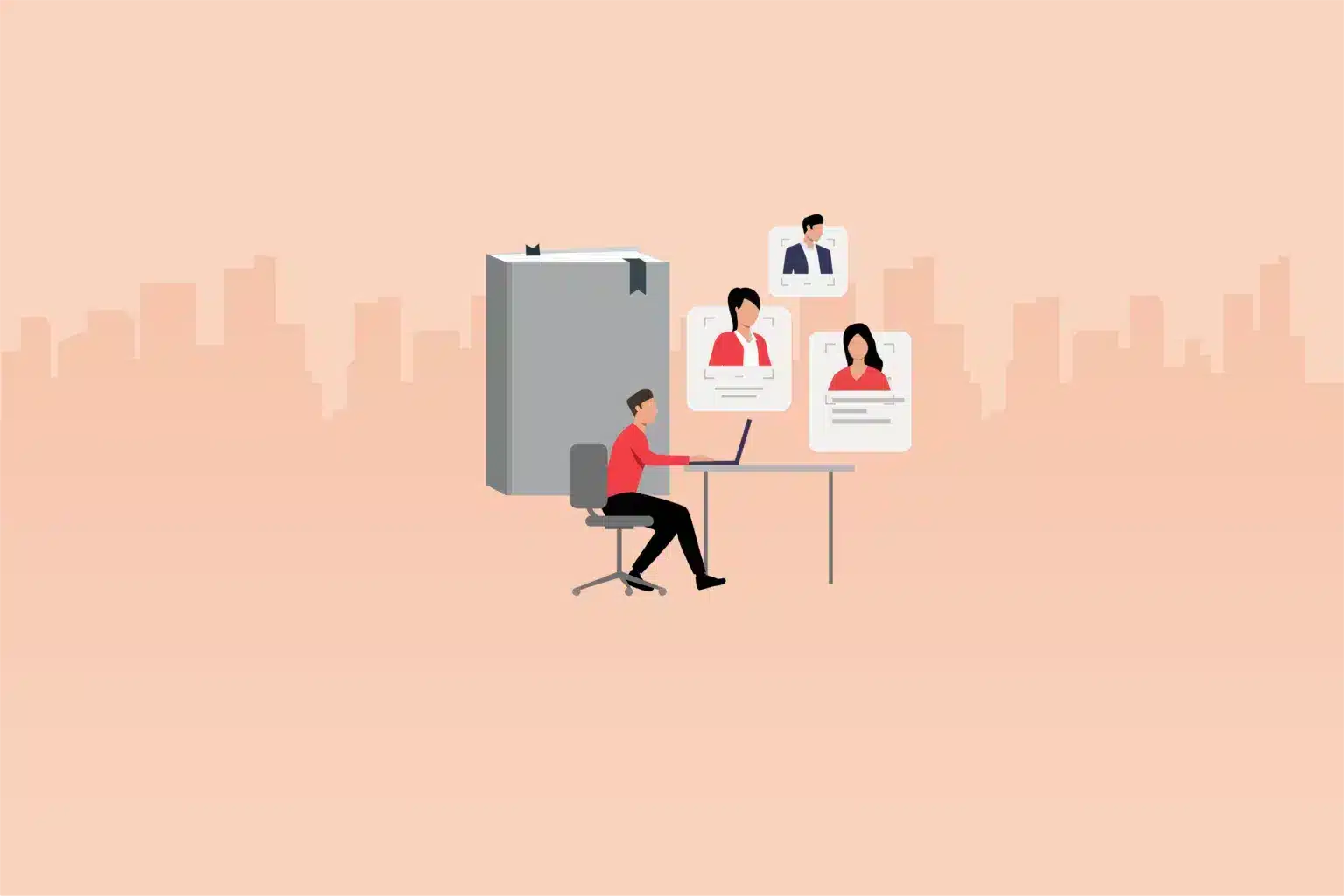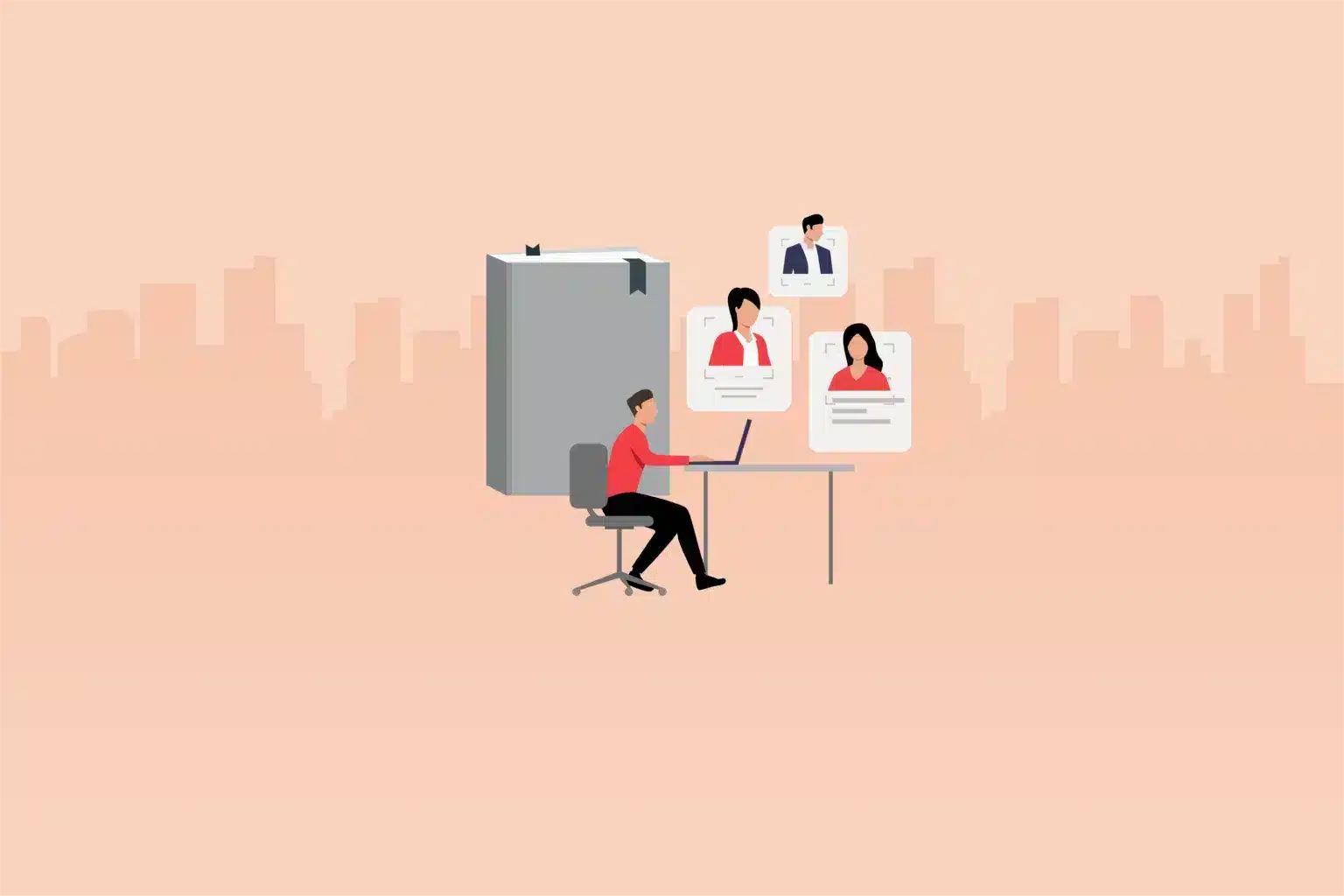The technical skills of a candidate are not the only thing to be considered while filling an IT position. In addition to testing their technical knowledge, you should inquire about their level of familiarity with your final product or service and any soft skills they may have, such as initiative and teamwork. To get all the information you need to make a hiring choice, it’s important to have a well-thought-out list of interview questions to ask top prospects for IT roles. The answer to a question like “Where do you see yourself in five years?” is unlikely to be revealed if it is too generic. Just asking a bunch of yes/no questions won’t cut it either. Instead, ask both general and specific questions based on the scenario, and pay great attention to both their words and their delivery. With any luck, these technical interview questions will help you find out whether this candidate has what it takes to succeed on the job, both technically and in terms of their motivation and ability to work well with others.
How to conduct a technical interview
To assist you decide what questions and assessments to include in technical interview questions, it’s helpful to understand what makes a good technical interview. To ensure a fruitful technical interview, think about doing the following:
1. Make sure the job description is thorough.
If you want to impress potential applicants with your technical interview questions skills, you need to know what the job entails before you even start. To tailor your technical interview questions and get a better sense of the qualities and abilities a perfect applicant could have, go to the job description. Think about the duties that come with the position to start with, as well as the ones that you may be able to take on as your experience grows. If you give them opportunities to progress, you could just find someone who becomes an asset to your team in the long run. Although technical interviews tend to focus on the technical abilities necessary for a position, it’s equally crucial to be aware of the soft skills that are relevant to the position. Before the interview, think of some technical interview questions that can help you demonstrate these soft abilities.
2. Interview by video chat or telephone.
Take into consideration the resumes that stood out to you and get in touch with the applicants to set up interviews via phone or video chat. Short technical interviews conducted over the phone or online allow hiring managers to gauge an applicant’s level of interest and competence before moving on to more in-depth stages of the recruiting process. In your phone or video interview, you could want to ask broad technical interview questions regarding the candidate’s background in relevant fields and any relevant talents they might have. Even though a candidate’s résumé will cover much of this ground, a phone or video interview will allow them to flesh out their answers and provide a more complete picture of their qualifications.
3. Delegate a test of remote coding
If a candidate stood out to you during the phone interview, you may give them a remote coding task to see how well they handle technical tasks. Think about giving them a short coding assignment and giving them a deadline to do it via email, video chat, or phone. The coding work needs to be challenging enough to assess candidates’ abilities while also being manageable enough for them to do it remotely and independently. Think about which applicants were most efficient, accurate, and innovative when you go over their completed tests. Potential employees who see this test as a chance to shine may be more inclined to do the same in their future positions.
4. Ask for examples of your prior work.
It is usual practice to ask for examples of past work from people applying for technical jobs like software engineers or web designers. Looking at the candidate’s past projects might give you a good idea of their abilities and expertise. Once you have a shortlist of applicants, it’s time to look over their portfolios to see who deserves an on-site interview (or a second remote interview if your organization allows it) and who doesn’t.
5. Design an activity to do on a whiteboard
After you’ve reduced the pool of applicants to a manageable size, call back the remaining contenders for a second round of interviews and a whiteboard challenge. You and the other interviewers will watch as the applicant writes, completes, or fixes code on a whiteboard. Based on the required degree of ability for the position, you might include one or more coding tasks. You may gauge your candidate’s advanced coding skills, problem-solving aptitude, and ability to work effectively under pressure by giving them this project, which is typically more difficult than the original one.
6. Carry out a more comprehensive interview
If you have any follow-up technical interview questions once the whiteboard challenge is over, feel free to ask them. Ask them open-ended questions about their technical abilities as well as more personal ones like their job preferences, their ideal workplace, and the factors that drive them. After that, you should inquire further about their history and expertise, making sure to ask about any relevant work experience and how it may apply to their new position. Lastly, develop a set of technical interview questions that are pertinent to the position you are advertising and provide the candidates with some hypothetical issues to solve.
7. Consider how candidates may work in your team
Try to put yourself in the candidate’s shoes and imagine how their personality and technical abilities might mesh with the role and team environment. Evaluate each applicant’s skills to determine if they can bring something fresh to the table. Assess their present skill set and willingness to develop to thrive in the job and contribute to the company’s goals.
Technical interview questions for all careers
Despite the widespread usage of technical interviews as a means of skill evaluation, not all sectors employ the same set of technical interview questions. In most cases, a product manager will not be asked the same technical interview questions by a hiring manager as a software developer. It is a good idea to review the fundamentals of your profession as part of your interview preparation, even if these five technical interview questions are typical in technical interviews.
1. How do you keep your technical skills up to date?
Things are always evolving, regardless of your field of employment. On one hand, some innovations make your work easier, and on the other, there is research that completely changes your understanding of the subject.
An interviewer who wants to know how you remain on top of technological developments will ask you these IT technical interview questions. The interviewer is interested in seeing if you are the kind to go above and beyond what is offered by the employer in terms of training and education, whether it be ongoing programs or tuition reimbursement.
Describe the steps you take to keep yourself informed and educated. Is formal, in-person, or virtual training something you often partake in? Take the time to read trade magazines and journals.
2. What resources do you use to help you do your job?
On the surface, this inquiry seems to be inquiring about the software applications you use daily for your job. It might be a project management tool (like Jira or Trello) or a technical tool (like GitHub). Google Suite and Zoom, which are less technical products, may also be considered tools. The term “resources” encompasses more than simply digital assets. Team members, a mentor, or a supervisor are additional examples of resources. For instance, what is your preferred method of interacting with and working with colleagues? Would you prefer email or Slack? What about face-to-face gatherings? Moreover, please elaborate on your preferred activity. As an example, you could find that Jira and Slack work well together as they provide a unified platform for all of your project communication and tracking needs.
3. How does working in an Agile setting compare to other types of workplaces?
You should know what an Agile environment is and how it differs from other methodologies (like Waterfall) before you can answer these IT technical interview questions.
Most often employed in the software development industry, agile is a methodology for project management that is based on teamwork. For example, let’s pretend the business is planning to update the current software. To make sure their section of the project “fits” with the others, all of the departments collaborate. In Waterfall, an alternative approach to project management, separate departments work on their teams. This is in contrast to this. If the business is implementing a chat feature into the website in an Agile setting, for instance, the technical team would write the code for the feature while coordinating with the design team to make sure it looks beautiful and functions as expected. Meanwhile, the customer service and design teams work together to make sure the chat option is helpful to consumers.
4. Tell me about one of your side projects.
This seems like it may be a general interview question rather than a technical one. Although it has a technological spin, it seems more like a generic “Tell me about yourself” type of interview question. But there’s more technicality to this topic than meets the eye.
The question “What are your side projects?” really means two things to an interviewer. To start, other than at work, do you ever put your technological talents to use? Doing so is just one more approach to show that you’re making good use of your abilities.
Second, having a day job and a passion for the area are both regular occurrences. Having side projects demonstrates that you are driven and like your work, regardless of whether you get paid for them or not.
Still, hardly everyone dabbles in technological endeavors on the side. Some persons would rather not work on projects outside of work because they have family responsibilities, non-technical interests, or other commitments.
Do not be bashful in responding to this question if it is so. Being forthright and honest about your lack of a side project is an option. In addition, the hiring manager’s reaction could provide insight into the culture of the organization. If you choose to spend your time with your family instead of working on technical side projects, an interviewer who nods, smiles, and says, “Cool,” probably values your commitment to maintaining a healthy work-life balance. Someone who looks worried about your after-work commitments and responds, “I see,” could be expecting you to put in a lot of hours and is trying to get your attention.
5. Is this your first time using our service or product?
The interviewer isn’t interested in learning the ins and outs of the product or service until you’re employed, but they are curious about your research habits and, indirectly, your motivations for seeking the position.
So, think about what you’ll say and how you’ll explain the service or product. Describe your feelings about it and elaborate on your likes and dislikes. Is there a good learning curve for using this product? Slow and clumsy? As long as you are careful, it is OK to point out some flaws.
Tips for assessing candidates after a technical interview
To assist you choose the best applicant for the role, ask yourself the following questions after your technical interviews:
- Were any applicants more inquisitive than the others? The candidate’s eagerness to learn and participate in the interview process is shown by their question-asking during the interview.
- In the long run, what do you see? You should seek a teammate who can commit to being with you for the long haul. If you want to know if a candidate is going to be around for the long haul, look at their job history and their responses to the work choice survey.
- In grading your exams, how many hours did they spend? Applicants who go above and above the call of duty demonstrate their dedication to the role and their willingness to work hard to succeed in it.
- Which of these candidates best meets your needs in this particular position? Candidates may have extensive relevant work experience, but they may lack the hands-on skills necessary to successfully do the tasks listed in your job description. Think about hiring the applicant with the most relevant work experience, rather than just the most experienced individual overall.
Conclusion
Technical interviews may be aced by anybody, even those with little experience, provided they come prepared. Get plenty of practice technical interview questions in and make sure you know the basics of the languages.
Avoid letting your anxiety and stress affect your performance during the interview by doing your best to remain composed and unruffled. What follows is a detailed outline of everything you need to know to ace your first technical interview, as we covered in this post.








